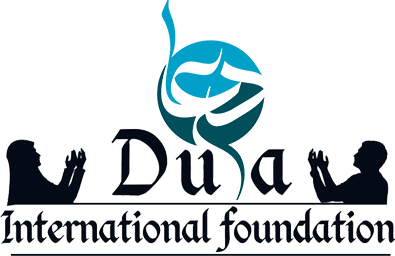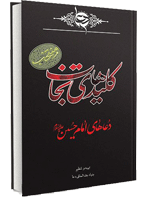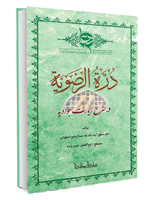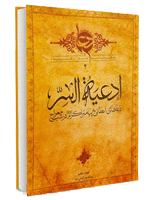- Prophet Muhammad (P.B.U.H&HF): Whenever one of you is needy and brings that to other people, he will not be satisfied. and Whenever someone is needy and brings that to Lord, he shall give him what he wants. sooner or later.
- Imam Sadiq (As.): Whenever you had tenderness in your heart, Pray. because your heart doesn't get tender unless it's pure.
- I told to Imam Baqir (A.S): “What is the meaning of “truly, Ibrahim was awwah and patient”? He replied: “Awwah means (the one who is) praying (to) and wailing (for God) a lot.””
- “Two people, who have acted alike, enter the heaven, but one of them sees the other one in a higher place. Then, he says: O’ Lord! How come has he a superior place in comparison to me while we acted alike? God the Almighty replies: “because he asked Me (whatever he needed) and you did not do that”.
- “The most knowledgeable person to God is the one who asks more from Him”
- “Whoever prays a lot, the angels say: This voice is familiar (to us) and this is the supplication which is accepted and this is the need which is provided”
-
The Holy Prophet (peace be upon him and his Household):
-
وَ لَوْ عَرَفْتُمُ اللَّهَ حَقَّ مَعْرِفَتِهِ لَزَالَتِ الْجِبَالُ بِدُعَائِكُم
If you knew god the way you should’ve known, Mountains definitely will be moved by your supplications. - Crying out of fear of God is the key to his mercy, it’s a sign for his acceptance and it’s a door to answering [supplications]
- Pray to God and believe in his answeres. But understand that God won't accept prays from an unwitting oblivious heart.
The Value of Prayer - Muhammad Mahdi Al-Asifi
The Value of Prayer
Muhammad Mahdi Al-Asifi
The Qur’an says:
“Your Lord has said, ‘Call Me, I will answer you. Indeed those who are disdainful of My worship will enter hell in utter humility.”9
Prayer implies the turning (iqbal) of a servant toward Allah. Turning toward Allah constitutes the essence (ruh) of worship (‘ibadah), whilst worshipping Allah is the goal of the creation of mankind.
These three points mentioned above reveal to us the value of prayer as well as its reality. So let us start with the third point and work our way upward to the first one.
The Qur’an is very clear in that worship (‘ibadah) is the aim behind the creation of the human beings. He, the Exalted, says:
“I did not create the jinn and the humans except that they may worship Me.”10
This is precisely what the third point entails; a concept which is of utmost importance in Islam.
The value of worship lies in that it ties and links the human being to Allah. It is due to this very reason that the intention of getting closer to Allah (qasd at-Taqarrub) is an essential element in the realization of ‘ibadah, without which the action performed would not be considered as ‘ibadah.
Hence, the reality of ‘ibadah is the journey toward Allah, turning to Him, aspiring His face, and seeking His pleasure. This is the second point which is, in fact, an illustration of the first point.
The first point implied that prayer is a state of turning toward Allah, as it is one of the most distinct instances of connection and link with Allah. Among the different acts of devotion (‘ibadah), there is no act which can take man closer to Allah than du’a’.
Sayf at-Tammar is narrated to have said, “I heard Abu ‘Abdillah as-Sadiq (‘a) saying, ‘I enjoin prayer (du’a’) upon you, for there is nothing which will get you closer to Allah than du’a’.’”11
The greater one’s need (hajat), desperation (idtirar) and dependency (faqr) on Allah, the more profound is his state of turning (iqbal) toward Him. There is a proportional relation between one’s feeling of dependency and his being in need of Allah desperately, and one’s turning toward Allah; for need and desperation prompts one to take resort in Him. And the iqbal of a person toward Allah, the Exalted, would be according to the degree of his perception of his own neediness, as the opposite is also correct.
He, the Exalted, says in this regard:
“Indeed man becomes rebellious when he considers himself without need.”12
Indeed man rebels and turns away from Allah as much as he sees himself to be needless. On the contrary, he turns toward Allah as much as he perceives his indigence and need toward Him. The Qur’an is precise in its words, ‘when he considers himself without need’.
In actual fact, no human being is needless of Allah, rather the whole of man’s existence is absolute neediness (faqr) to Allah:
“O mankind! You are the ones who stand in need of Allah, and Allah –He is the All-sufficient, All-laudable.”13
Nevertheless, it seems to him that he has become needless, and it is the arrogance (ghurur) of man that creates this impression in him.
When it appears to him that he is needless, he becomes disregardful and turns aside and transgresses. But when distress touches him and he feels himself to be in need of Allah, then he comes back and turns toward Him.
In conclusion, the reality of prayer is ‘turning toward Allah’ (iqbal). Whoever wishes to call on Allah and implore Him, he must turn toward Him earnestly. And it is this state of ‘turning’ which constitutes the reality and essence of prayer and makes it valuable.
Four Ways of Reaching Allah in the Qur’an
Supplication is among the most important ways ordained by Allah for His servants in order for them to arrive at Him.
Apart from this, Allah, the Exalted, has stated in the Qur’an four ways of arrival at Him.
Imam as-Sadiq (‘a) is reported to have said, “There are four things in favour of man, and not against him; faith (Iman) and thankfulness (shukr), for Allah, the Exalted, says: ‘Why should Allah punish you if you give thanks and be faithful?’14; seeking forgiveness (istighfar), as He, the Exalted, says: ‘But Allah will not punish them while you are in their midst, nor will Allah punish them while they plead for forgiveness’15; and prayer (du’a’), for He, the Exalted, says: ‘Say, ‘My Lord would not care for you were it not for your supplication?’16”17
Mu‘awiyah bin Wahab narrates from Abu ‘Abdillah as-Sadiq (‘a), “O Mu‘awiyah! Whosoever is given three {things} shall not be deprived of the {other} three. Whoever is given prayer (du’a’) shall {also} be given the response (ijabah). Whoever is endowed with thankfulness (shukr) shall {also} be endowed with enhancement (ziyadah). And whoever is granted reliance on Allah (tawakkul) shall {also} be granted sufficiency (kifayah), for Allah, the Exalted, says in His Book, ‘And whoever puts his trust in Allah, He will suffice him’18; and He says: ‘If you are grateful, I will surely enhance you {in blessing}’19; and He says: ‘Call Me, I will answer you.’20”21
‘Abdullah bin Walid al-Wasafi reports from Imam as-Sadiq (‘a), “{There are} three things with which nothing can cause harm {to a person}; prayer (du’a’) during hardships, seeking forgiveness (istighfar) after committing a sin, and thankfulness (shukr) when one is given a blessing.”22
These are in fact channels of communication with Allah. Nonetheless, the channels of communication with Allah are many, such as repentance (tawbah), fear (khawf) and awe (khashyah) of Allah, love (hubb) and yearning (shawq) for Allah, and hope in Allah (raja’).
However, man’s relation with Allah must be structured on a well-arranged collection of the above elements, as Islam does not approve the theory of there being only a single way of communication with Allah.
Prayer is one of the most significant means of communication with Allah and turning toward Him. This is because nothing inspires people to take resort to Allah the way their neediness (hajat) and indigence (faqr) prompt them to do so. Hence, du’a’ is among the widest of the doors of communication with Allah.
In his supplication at dawn, Imam Zayn al-’Abidin (‘a) says: “All praise is due to Allah whom I call for my need whenever I wish, and confide to Him my secrets whenever I will -without a mediator, and He fulfills my need.”
Book: Supplication In the Eyes of the Ahl al-Bayt (as)






